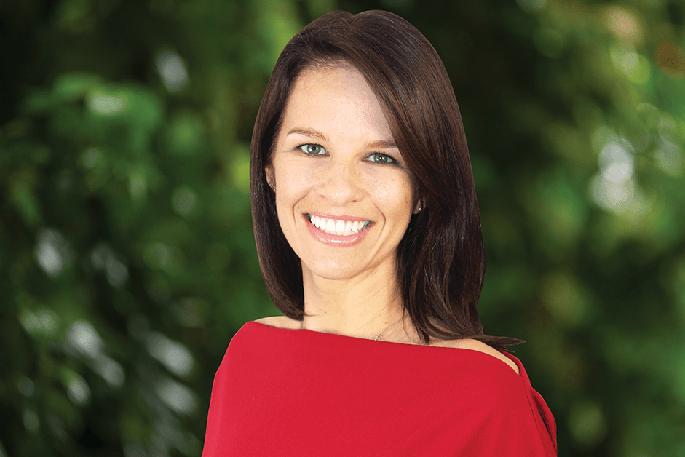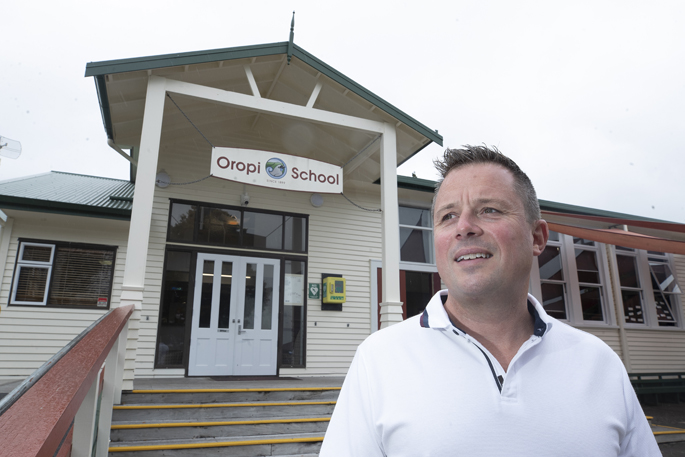More staffing and resources are needed in the education system rather than a 'political football” a Bay of Plenty principal has said.
Ōropi School principal Andrew King has spoken out about the National party's Teaching the Basics Brilliantly education policy.
The policy would require children at primary and intermediate school to spend an hour each day on reading, writing and maths.
There would be minimum requirements for what schools must teach in each of these subjects as well as science.
Twice yearly standardised tests would be required for Years 3 to 8. The party also promised better training and tools to support teachers.
It has a goal of 80 per cent of Year 8 students being at or above the expected curriculum level for their age in reading, writing, maths and science by 2030.
King says the policy is a 'very simplistic view”.
'I agree that the teaching of reading, writing and mathematics is important. But it's not as simplistic as saying it's one hour a day for each of those three areas,” he says.
'Kids don't arrive at school all at the same starting point.”
The curriculum refresh already underway is focussed on literacy and numeracy, says King.
'We don't need this political football game where they [National] throw the baby out with the bath water, and forget that there's actually good stuff already going on, that if they were to be elected they could carry on with.”
Starting again would be 'a massive waste of taxpayers' dollars”, he says.
A principal of 15 years, King says literacy and numeracy slipped when National introduced National Standards in 2010.
Primary school teachers were required to assess students against a set of National Standard benchmarks.
'What happened under National Standards is teachers became focused on teaching to the test and forgot about all the intricacies of what quality teaching of writing and reading and maths looks like.
'We should be focused on progressing children where they're at individually.”
It is not just the education system that had caused children to 'go backwards', he says.
'It's around societal issues, it's around disengagement in learning, it's also about under resourcing [in schools].”
Funding for schools has got 'less and less” over the years and compared to high performing OECD countries schools in Aotearoa get less funding per student, says King.
'We don't have good teacher to student ratios.
'Over the last few years and because of Covid … we've got a greater diversity of need. That need to be focused on each and every individual child has become more and more important, yet harder and harder to do.”
King agreed with National that teachers need more time for professional learning and development in reading writing and maths, and that those studying to be teachers needed more training in teaching those areas as well.
'There's a lot to learn about how to teach it effectively.”
 National's education spokesperson Erica Stanford said the policy was evidence based and fully researched. Photo: Supplied/National.
National's education spokesperson Erica Stanford said the policy was evidence based and fully researched. Photo: Supplied/National.
Responding to King's concerns, National's education spokesperson Erica Stanford says everything in the policy is evidence based and fully researched.
A lot of it is based on what the Education Review Office had said over the past 20 years and the Royal Society report on improving maths and stats learning published in 2021, she says.
'There's huge variability across New Zealand so depending on where you go to school depends on how much math you get.”
Stanford says the report recommended a mandatory requirement to teach maths for an hour a day.
The maths, reading and writing didn't need to be all in one go and could be mixed in with other subjects, she says.
'On average, schools need to be teaching an hour a day to make sure there is consistency across the country.”
In regards to National Standards, Stanford 'acknowledged there were some issues” with the 'point in time assessments” under that system.
The proposed twice-yearly assessments would be 'completely different” and measure progress as well as point in time, she says.
'The key difference is celebrating progress and celebrating progress is very, very important.”
Stanford says 'teaching to a test” would be a lot harder and the tool they had chosen allowed teachers to set the level of the test, but the content would be unknown to the teacher prior to testing.
'Having a year by year curriculum, I want them to teach that material and we want them to assess on it.
'So, I'm not going to apologise for teachers teaching to a test in this case.”
National was not planning to 'start all over again” with this policy and would take a lot of the work that had already been done on the curriculum refresh, she says.
'The problem with the curriculum is I have no confidence that it's any better than what we already have.
'We want to take what's already been done but create a year-by-year guide of core content knowledge so that teachers know exactly what core content knowledge needs to be imparted each year.”
Asked about funding, Stanford says: 'There is more to come and some of the issues around teacher resourcing will be addressed in future policy.”
Public Interest Journalism funded through NZ On Air




0 comments
Leave a Comment
You must be logged in to make a comment.